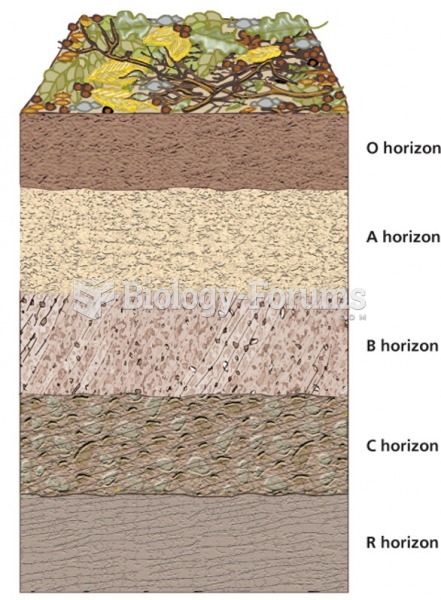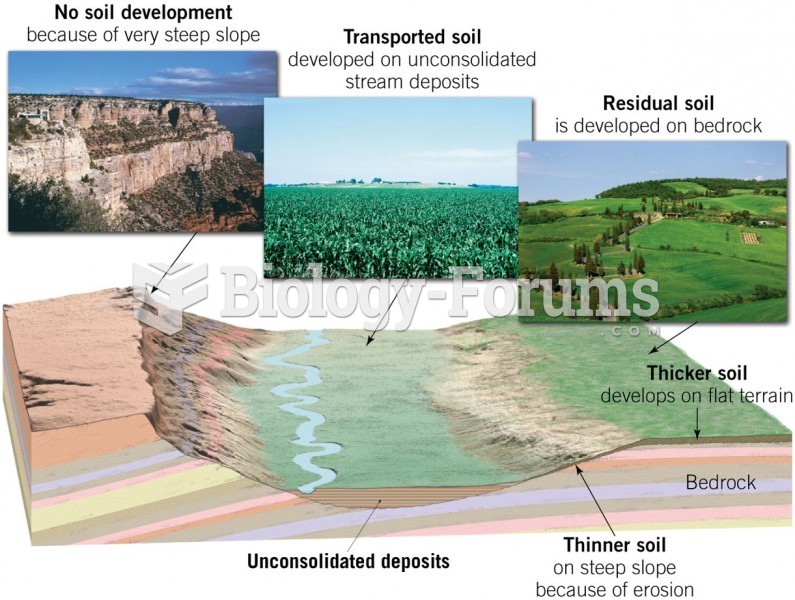|
|
|
When Gabriel Fahrenheit invented the first mercury thermometer, he called "zero degrees" the lowest temperature he was able to attain with a mixture of ice and salt. For the upper point of his scale, he used 96°, which he measured as normal human body temperature (we know it to be 98.6° today because of more accurate thermometers).
Human kidneys will clean about 1 million gallons of blood in an average lifetime.
Bacteria have flourished on the earth for over three billion years. They were the first life forms on the planet.
The top five reasons that children stay home from school are as follows: colds, stomach flu (gastroenteritis), ear infection (otitis media), pink eye (conjunctivitis), and sore throat.
In the United States, an estimated 50 million unnecessary antibiotics are prescribed for viral respiratory infections.







